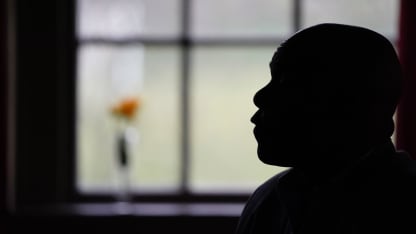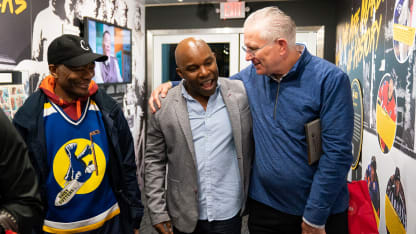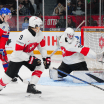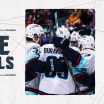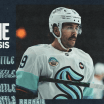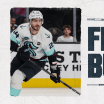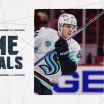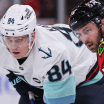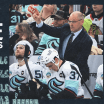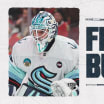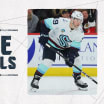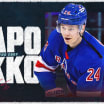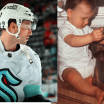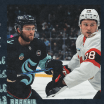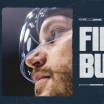NHL Seattle:You've gone back to your roots with the "Soul on Ice" podcast. How did that come together?
Kwame Mason:I never really thought about doing a hockey podcast. I love the idea of radio, I just didn't love the industry because the industry was very non-inclusive in my opinion.
Elijah Roberts and
Akil Thomas
called me almost a year ago and said, "Yo, Kwame, we were just thinking we'd love to do a podcast and we wonder if you could help us out?"
And then they were like, well, would you mind if we called it "Soul on Ice?"
We were supposed to release this last summer, but we just couldn't get our ducks in order. The great thing about the podcast is it's another way to reinforce my philosophy of normalizing Black voices and faces in the game of hockey.
There's a lot of podcasts out there, but as far as Black podcasts go, we're the only ones that are bringing in guys like Grant Fuhr and Blake Bolden, and Kiana Scott talking about women being scouts. That's our style. That's something nobody in the hockey space would bring in, our culture to the game of hockey.
NHL Seattle:It seems like the podcast is a vehicle you want to use to bring Black culture to hockey and hockey to Black culture. You've been able to partner with the NHL and Wyclef Jean on a dinner party for hockey players, regardless of their background …
Kwame Mason:How crazy is that? With all that's going on now. And we did that. It's crazy, that was ahead of its time.
